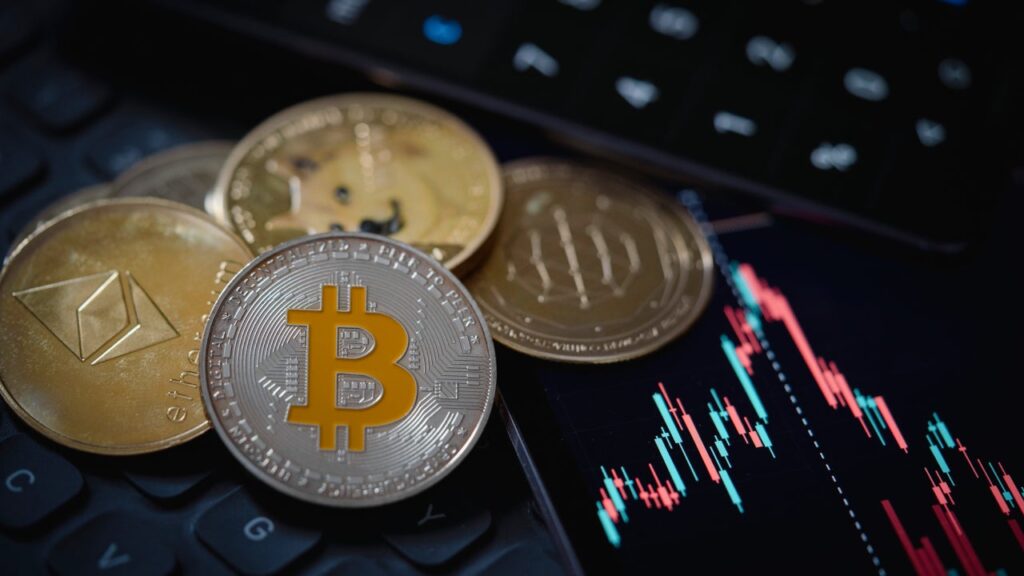Essential Insights for Day Trading Cryptocurrency: 9 Key Points to Consider Before Making Trades

The unpredictable nature of cryptocurrency markets is notorious, with dramatic fluctuations often occurring within hours, which lures in active traders seeking quick gains. However, this instability brings not only opportunities for profits but also significant hazards if the movements turn unfavorable. Notably, venturing into crypto day trading is neither straightforward nor cost-effective compared to the more mature stock day-trading scene, and traders are advised to arm themselves with additional knowledge when entering these arenas.
Let’s explore key insights that you should be aware of before diving into the world of day trading cryptocurrencies and understand why it may be a more perilous venture than stock trading.
9 critical insights for cryptocurrency day traders
1. Market volatility can decimate your trading plan
While seasoned traders relish the volatility of the cryptocurrency market for potential profits, its erratic swings can also be treacherous. Sudden price drops, like the 73% fall of Bitcoin in 2018 and the 64% slide in 2022, or price surges, such as the 302% climb in 2020 and the 156% increase in 2023, exemplify this instability. This environment opens doors for savvy traders looking to capitalize on the panic sells of less experienced participants. However, controlling risk remains a crucial aspect for all traders, novices and veterans alike. The absence of a tangible backing for cryptocurrencies means market sentiment is the primary driver, creating scenarios where coins can nosedive or soar based on the collective mood of traders.
2. Long-term investment strategies may be more effective
Crypto’s intense swings suggest that a simple buy-and-hold approach could be more fruitful for investors unwilling to navigate daily market gyrations. By committing to a strategy of holding, investors can ride out the waves of volatility without having to pinpoint the optimal exit moment. Still, careful selection and diversification among prospective winning cryptocurrencies is critical. The dominant share of market capitalization held by Bitcoin and other leading coins attests to this cautious trading approach.
3. Commission-free trading in crypto often comes with hidden costs
Although stock trade commissions have mostly been reduced to zero, cryptocurrency trades are seldom genuinely cost-free. Platforms like Binance.US may offer zero-fee trading on select digital currencies, while brokers such as Robinhood claim to provide commission-free trades but incorporate spreads in their pricing. Many traders remain unaware of these mark-ups, which can leach away profits. Discerning the most cost-effective brokers for trading cryptocurrencies can help mitigate these hidden fees.
4. Avoid trading minuscule crypto amounts
Trading with small quantities of cryptocurrency can attract proportionately higher fees that significantly impact your resources. While trading platforms may reduce fees for larger trading volumes over a period, it’s not a sufficient reason to make a trade based solely on low costs.
5. Be vigilant of maker-taker fees in crypto trading
Crypto exchanges often employ a maker-taker pricing model that rewards those who contribute liquidity to the market via limit orders with lower “maker” fees, while penalizing “takers,” or those who execute immediate market orders, with higher charges. While the cost difference might be slight, it’s a factor active traders must consider to minimize persistent expenses.
6. Choose a platform conducive to active trading
For day trading, selecting an appropriate platform is paramount. Options range from dedicated crypto exchanges, offering a plethora of tradable coins, to traditional brokers like Interactive Brokers, with a more curated selection and competitive prices.
7. Consider crypto ETFs as a(n) alternative
Exchange-traded funds (ETFs) now offer a route for trading major cryptocurrencies like Bitcoin and Ethereum. These instruments boast several advantages over direct crypto trading, including the elimination of exchange-related fees, established security practices of traditional brokers, typically lower overall costs, and outsourced responsibility for secure crypto storage.
8. Remember that profits from crypto trades are taxable
Regardless of crypto’s semi-anonymous nature, the IRS mandates taxes on capital gains from profitable cryptocurrency trades. It’s important to report these transactions accurately, as failing to do so can result in hefty penalties. Tax-loss harvesting strategies at the end of the fiscal year can help to optimize tax liabilities.
9. Cryptocurrency traders are not currently bound by wash sale regulations
Crypto investors currently enjoy an exemption from the wash sale rules that apply to other financial assets. Consequently, crypto traders can claim tax losses on sales while promptly repurchasing the assets. It’s important to be aware that this provision might change as regulatory scrutiny increases.
Conclusively
The turbulence of cryptocurrency markets poses significant challenges for day traders, but being conscious of these intricacies can steer them towards more informed decision-making. Above all, traders should scrutinize trading expenses, as even minor costs can amass over time and erode profits.
Source link
#Day #Trading #Crypto #Essential #Buying #Selling






